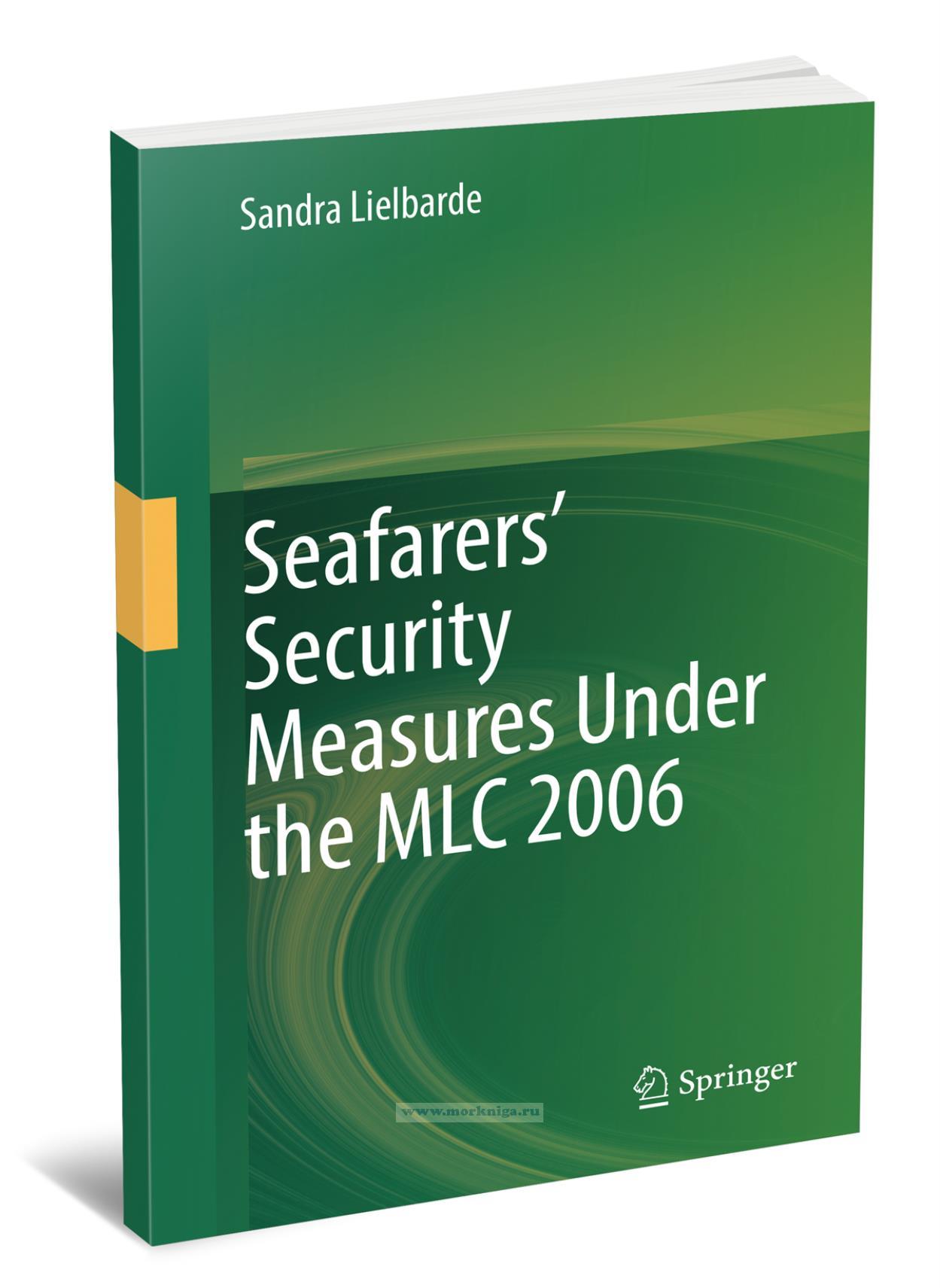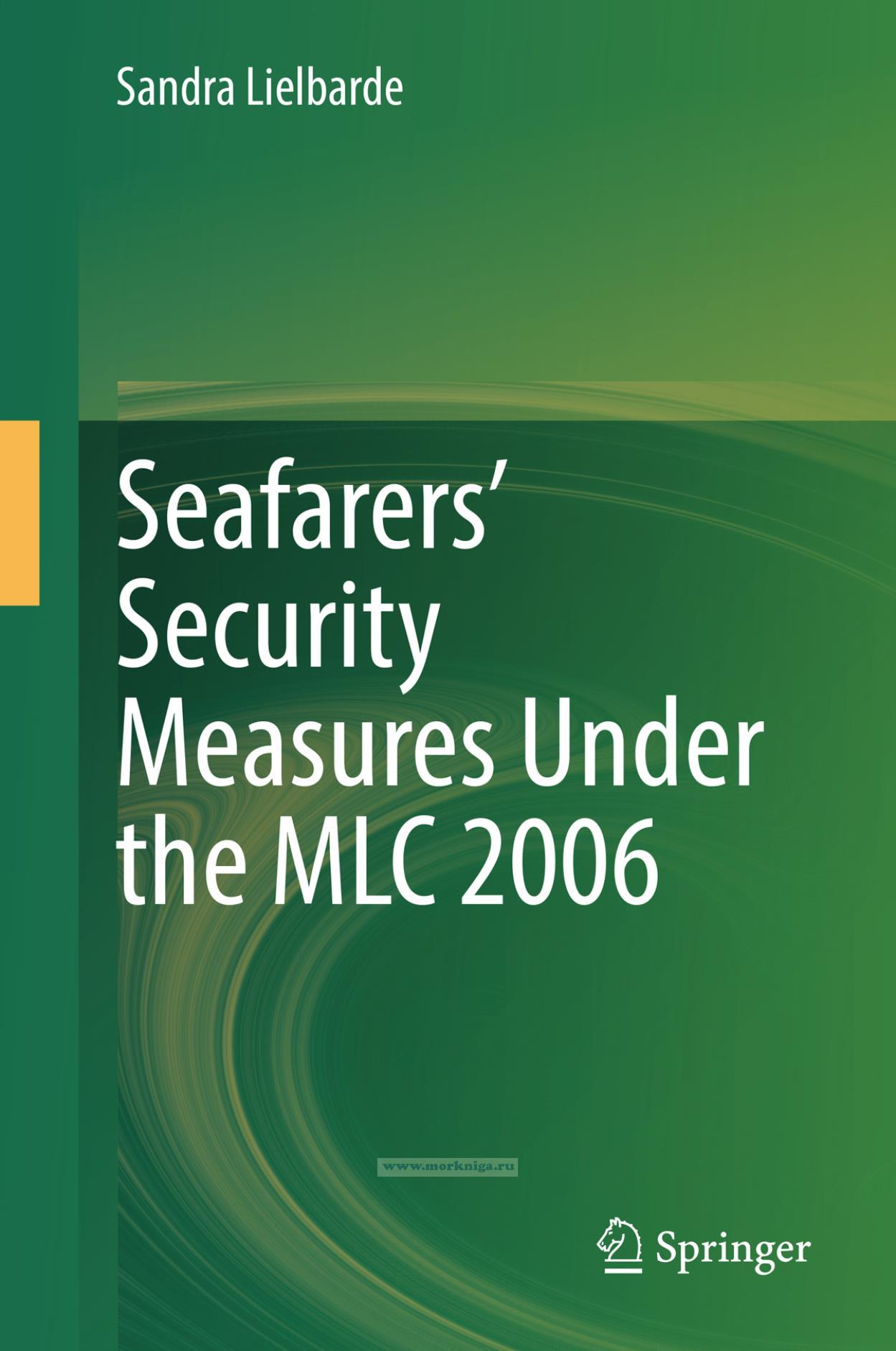Seafarers’ Security Measures Under the MLC 2006/Меры безопасности моряков в соответствии с Конвенцией 2006 года о труде в морском судоходстве
Книга на английском языке
The book is intended to be about the Maritime Labour Convention 2006 (MLC 2006) , about seafarers' security measures available before MLC 2006 and after its adoption. The following security measures will be addressed in the book: mandatory financial security established by the MLC 2006, flag State responsibility, labour supplying responsibility, port State control, and a ship arrest. The responsibility of the shipowner in respect of the seafarers engaged in work on his ship will be discussed in analysis of nowadays seafarers' recruitment process and a legal structure of shipping companies. Content will include the analysis of international (UNCLOS, ILO and IMO conventions, UNCCRO's, and Vienna Convention on Consular Relations 1963) and national law (Denmark, Estonia, Finland, Germany, Latvia, Norway, The Philippines, and The UK), and relevant legal documents - agreements, guidelines, and court cases.
Contents
1 Introduction
1.1 What Is the MLC?
1.1.1 Application of the MLC
1.1.2 Structure of the MLC
1.2 The Topics to Be Examined
1.3 Use of Terms
References
2 Definition of the Responsible Party: Shipowner Under International Law
2.1 UNCLOS
2.2 IMO Legal Instruments
2.2.1 SOLAS, 1974 , and the ISM Code
2.2.2 Other IMO Conventions
2.3 ILO Conventions
2.4 UNCCRS
2.5 The Vienna Convention on Consular Relations, 1963
References
3 Legal Concept of Shipowner Under the MLC
3.1 Introduction to the Interpretation of Legal Terms
3.2 Term and Definition
3.3 Legislative Intention
References
4 National Law on a Responsible Shipowner: Implementation of the MLC at the National Level
4.1 Introduction
4.2 Denmark
4.3 Estonia
4.4 Finland
4.5 Germany
4.6 Latvia
4.7 Norway
4.8 The Philippines
4.9 The UK
References
5 The Recruitment and Placement of Seafarers in Shipping Practice
5.1 Introduction
5.2 Selection of a Flag State as an Important Economic Factor
5.3 The Corporate Structure of Shipowners
5.4 The Responsible Shipowner in Standard Contracts in Shipping
5.4.1 The SEA as a Primary Source of Information About the Shipowner
5.4.2 Collective Bargaining Agreements as Part of SEAs
5.4.3 Delegation of Responsibility Over Seafarers’ Employment According to Standard Contracts in Shipping
5.4.4 Other Contracts with Third Persons
5.5 Jurisdiction and Applicable Law to Seafarers’ Cases
References
6 MLC Requirements on Financial Security and Shipping Practice
6.1 Requirement on Financial Security in the Original Version of the MLC
6.2 MLC Amendments 2014 to the Requirements for Financial Security
6.3 Seafarers’ Abandonment Cases After the MLC Amendments 2014
6.4 MLC Amendments 2022 Regarding Financial Security
6.5 ILO-IMO Guidelines on How to Deal with Seafarer Abandonment Cases
References
7 Flag State Responsibility in Respect of MLC Requirements
7.1 Inspections and Certification
7.2 Handling of Complaints
7.3 Authorization of ROs
7.4 Flag State Responsibility to Arrange Repatriation
References
8 Port State Control and the MLC
8.1 Introduction
8.2 MLC Standards on PSC
8.3 Insight into Reports of PSC Regimes on Seafarer Matters
8.4 Considerations on the Effectiveness of PSC
References
9 Labour Supplying Responsibilities Under the MLC
9.1 Certification and Control of SRPSs
9.2 SRPSs’System of Protection
9.3 Exterritorial Application of the MLC Standards
10 Ship Arrest
References
11 Conclusion
11.1 Promotion of the Uniform Implementation of the MLC Concept of Shipowner
11.2 Requirements for the Signing of SEAs and Indication of the Final Responsible Party in SEAs
11.3 Regulation of the Insurance Certificate and Its Termination
11.4 Regulation of the SRPS System of Protection
References

